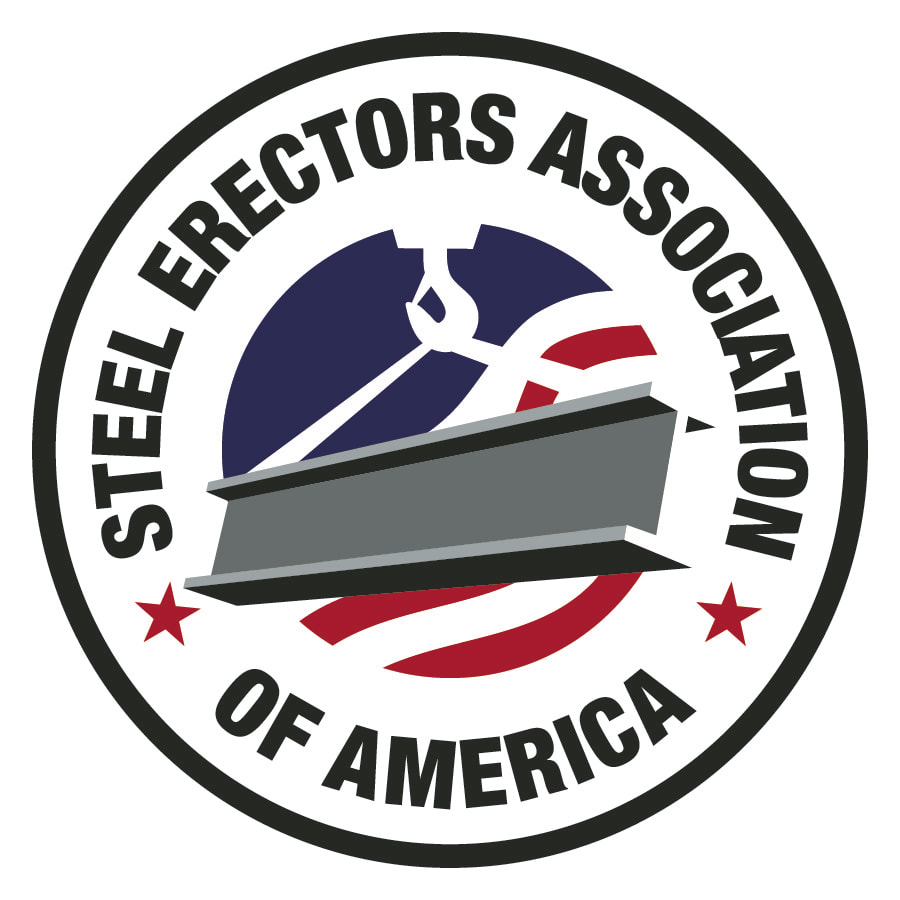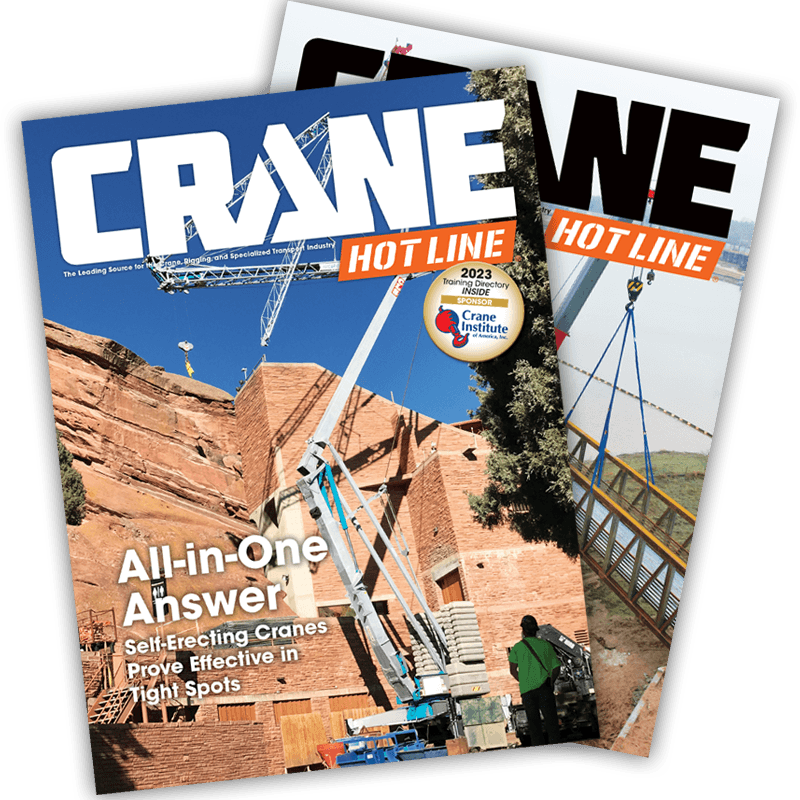Steel Erectors Honor Projects of the Year
 June 9, 2022 - The Steel Erectors Association of America (SEAA) has named its winning Projects of the Year for 2022.
June 9, 2022 - The Steel Erectors Association of America (SEAA) has named its winning Projects of the Year for 2022.
Entries competed in four classes, based on contract value for the structural construction portion of the job.
In addition, the association opened a new category this year for Miscellaneous Metals in two classes. The category includes bridges, decking, ornamental steel, reinforcing steel, and steel fabrication.
In all, seven companies were recognized for effectively solving unique job-site challenges while completing projects safely. (No projects were submitted in the Class II Structural and the Class I Miscellaneous Metals categories.)
Submitted projects are evaluated by an independent panel of judges.
“Common challenges faced by the 2022 award winners included tight working conditions, wind restrictions, the need for significant bracing, tandem-crane picks, and working adjacent to historic buildings,” said Bob Beckner, of the SEAA awards committee.
“The judges were also impressed with the use of innovative technology to solve constrained labor supply issues on the winning project in the Miscellaneous Metals category,” he said. “We hope participation in this category grows with time, as we add new benefits that address the needs of members doing this type of work.”
Winners receive trophies, feature article coverage in Connector magazine, and the chance to participate in peer panel discussions with SEAA and at AISC’s Steel Conference.
Miscellaneous Metals, Class II
 |
|
Shelby Erectors |
Shelby Erectors was recognized with the inaugural award for Miscellaneous Metals in Class II for the Wekiva 6 project, 5.5 miles of FDOT roads and bridges along the Wekiva River in central Florida. The job required tying 16 million lbs. of rebar and installing nearly 1 million sq. ft. of Stay-in-Place deck forms over 18 structures.
Coordinating schedules and labor was one of the biggest challenges, as crews worked simultaneously at three locations. The project included four bridges with long decks and complex cast-in-place box girders. To maximize labor supply, the company pre-tied as many structures as possible and used new robotic technology to tie rods.
Structural, Class I
.png) |
| Steel Fab Enterprises |
Class I Structural (up to $500,000) was awarded to Steel Fab Enterprises LLC for an Amtrak train station and walkway bridge in Middletown, Pennsylvania.
What appears on the surface to be a straight-forward job was actually very challenging due to the environmental conditions. Steel Fab fabricated and erected all structural steel, ornamental stairs, and handrails on a job site adjacent to active train tracks. All assemblies had to be lifted by crane over de-energized transmission lines at night or on weekends, and daytime work required close coordination with Amtrak officials.
Steel Fab pre-determined 15 assemblies to be lifted by a 600-ton Demag AT crane. In addition, special three-coat paint required that padded protection be used to prevent damage to the finish.
Honorable Mention in this category went to Hodges Erectors Inc. for a 57-story condominium called Missoni Baia in Miami, Florida.
The scope of the project included erecting belt trusses from level 36 to 38 of the condo building, as well as the roof crown truss. The challenges included rain and winds that often exceeded 30 mph, requiring crane demobilization at a moment’s notice.
In addition, half of the belt trusses exceeded the tower crane’s capacity, so the had to be lifted with tandem picks by two tower cranes.
Structural, Class III
 |
| Williams Steel Erection |
Class III Structural ($1 million to $2.5 million) was won by Williams Steel Erection Co. Inc. for construction of a multi-purpose 10,000-seat arena on the campus of James Madison University in Harrisonburg, Virginia.
The Atlantic Union Bank Center Arena consisted of 2,700 tons of steel, including a roof structure supported by eight trusses that weighed up to 55 tons each and had a maximum length of 230’.
All trusses were fully assembled on the ground, then tipped and raised into place with two cranes, and supported by significant temporary bracing.
From the start, Williams Steel determined that the design criteria for the project conflicted with the constrained work site, which is built into the side of a hill on one side and abuts streets on two other sides.
Also, the arena’s bowl was too small to allow full assembly of the trusses. The final truss placement was among the most difficult, with only a 30’ opening remaining to accommodate three cranes and the truss.
Williams used three Link-Belt cranes for the job: a 100-ton hydraulic truck crane, a 200-ton lattice-boom crawler crane, and a 200-ton lattice-boom truck crane.
Honorable Mention in the category went to Flawless Steel Welding for an apartment community in Denver, Colorado, known as the Uptown Pearl.
Flawless Welding was brought into the Uptown Pearl — a mixed-used apartment community — to provide a turnkey solution when the previous steel subcontractor abandoned the job site with the project behind schedule.
After re-detailing all connections of landing for post installation and accounting for previous inaccurate concrete embeds and anchor bolts, the company was awarded an additional scope to fabricate and erect a tavern inside a historic structure that left the original façade intact.
Structural, Class IV
 |
| Deem Structural |
Deem Structural Services was recognized in Class IV Structural (over $2.5 million) for its work on the United States Air Force Academy Cadet Chapel in Colorado Springs, Colorado.
The chapel project’s fabricator, Basden Steel, brought in Deem Structural early on to determine the erectability of the 40,000-sq.-ft. clear-span temporary structure to be built over the chapel. The structure, which reaches higher than 180’, will allow renovations of the National Historic Landmark.
The structure had to be suitable for the dynamic loads of installed overhead cranes. All attachments, including the roof deck, had to be fastened mechanically, as welding presented an unsuitable risk to the historic structure.
In addition, significant temporary bracing was needed in order to carry horizontal loads and to distribute loads that changed throughout the project. When renovations are complete, Deem Structural will return to dismantle the temporary building.
Honorable Mention in this class went to Mid Atlantic Steel Erectors for the Virginia General Assembly Building in Richmond, Virginia.
Working in tight site conditions, Mid Atlantic Erectors erected a 15-story office building that blends with an original 1912 façade.
That required fabrication of a 3-story truss to span a basement level and support upper floors. In the historic part of the building, the company custom built reinforcing steel on site and retrofitted window supports.
Project challenges included winds stronger than 25 mph that would shut down tower-crane operations and low ground pressure requirements that limited mobile crane options. In addition, the project faced delays due to pandemic-related shut downs and city riots.

